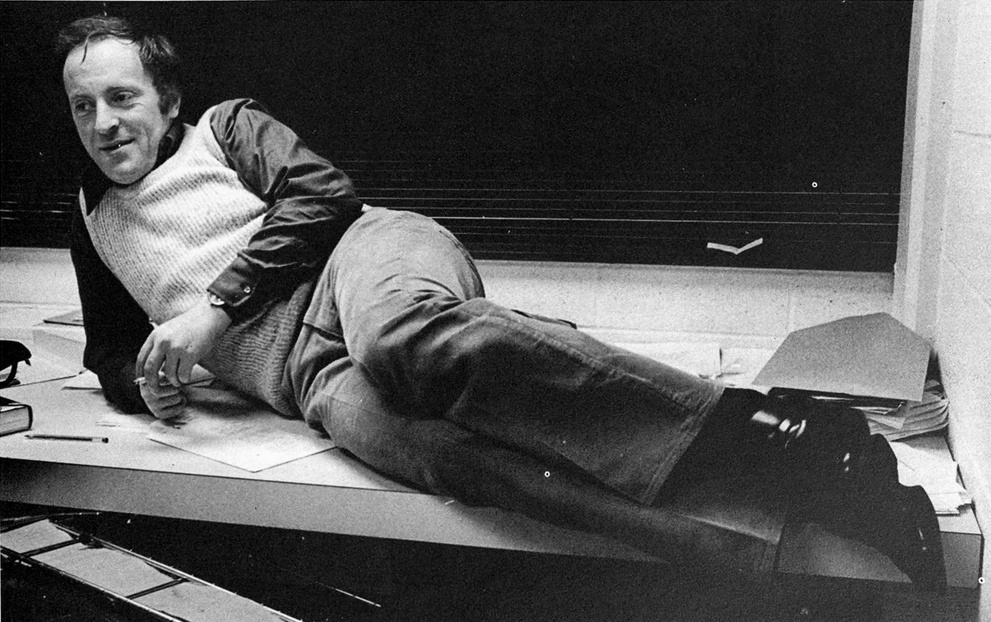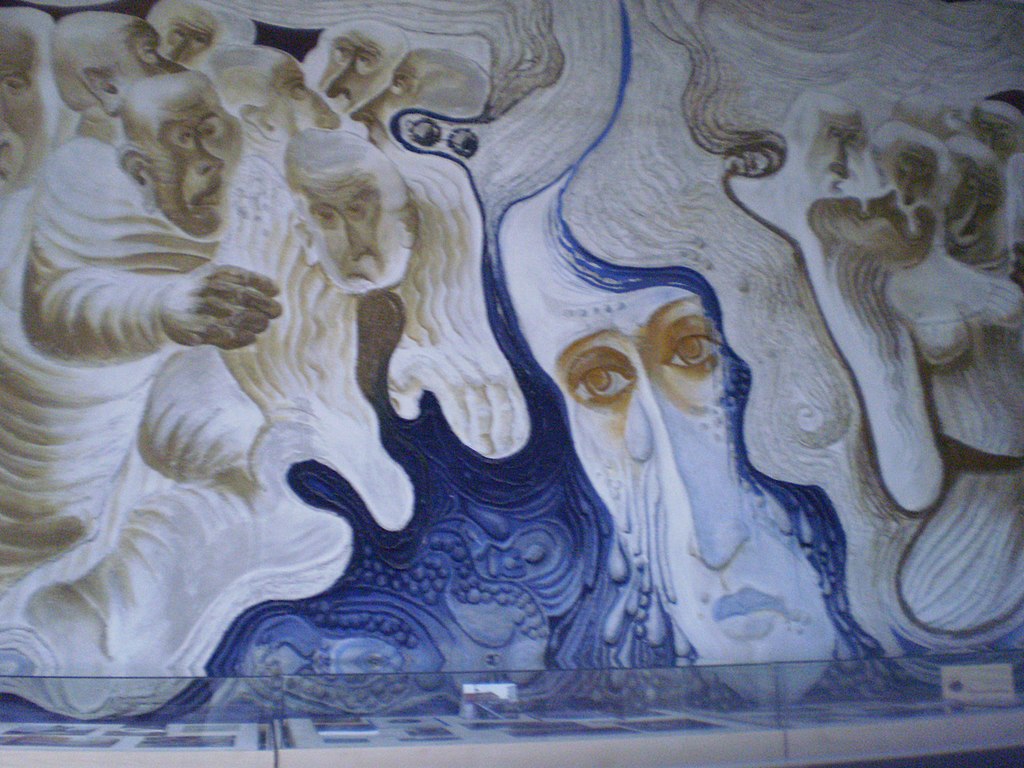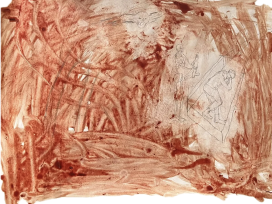
For those who suffered the consequences of Yalta’s division of Europe, the Helsinki Final Act brought grounds for optimism. Today, as Russia’s regressive war on Ukraine reopens old conflicts, it stands as a monument to European modernity.
Culture alone can’t provide a quick solution to Russia’s current social and intellectual predicament. Russians need urgently to learn the art of self-analysis before they can move forward.
In his recent essay, ‘Don’t Blame Dostoevsky’, published in The Atlantic this July, Mikhail Shishkin sets out to challenge the rapidly trending ‘Cancel Russian Culture’ movement that came about as a result of the war. Shishkin presents Russian literature at its best as a call for justice and humanity, itself the frequent victim of prosecution and censorship, rather than a power discourse, as many would have it. He forcefully rejects the notion that literature is in any way to blame for the spirit of Russian imperialism and for today’s war atrocities. He cites two classic texts, Alexander Herzen’s Who is to blame? and Nikolai Chernyshevsky’s What is to be done?, as perfect if ultimately ineffectual models of how the literary intelligentsia might respond to persecution or social paralysis. He quotes the closing lines of Pushkin’s Boris Godunov – ‘The people are silent’ – as emblematic of the fear, apathy and ignorance that has for centuries prevented Russians, under a succession of brutally oppressive regimes, from taking ownership of their destiny.
Shishkin points out that ‘[t]he history of Russian culture is one of desperate resistance, despite crushing defeats, against a criminal state power’, and deduces that culture must therefore be the ‘only … way out of the vicious circle’. Indeed, he claims that only literature can bridge the social gap between barbaric ignorance and ‘civilized’ humanism. Though the value of resistance that does not directly result in victory is certainly worth noting, the idea provokes further questions about where the path to a different future lies – about how to bring about the cultural and, more important, human revival for which we all hope.
Unfortunately, the history of Russian culture and society tends in fact to run contrary to the path that Shishkin draws. Despite a glitteringly instructive cultural heritage and a turbulent history packed with readily legible object lessons, many Russians have learned little or nothing from it, and remain content to pursue the same self-destructive life-cycle as we have for centuries. Before we even begin to consider literature or the arts as a viable means of salvation, we first need to learn something about ourselves. The English philosopher John Stuart Mill famously said that the tyranny of society over itself is greater than the tyranny of any one individual over it. If a contemporary example were needed to reaffirm that claim, modern Russia would be the perfect choice.
Many of us, Shishkin included, are sometimes tempted to present Russians as the impotent and fatalistic victims of a malign force far greater than ourselves. This, however, is a conveniently passive and self-perpetuating view of the Russian spirit that, coming very naturally, is easy to hide behind. Such a position is dangerous and counter-productive, too straightforward a way out, presuming as it does that victimization exempts us from self-criticism, and what’s more that this exemption is an inherent property of our culture and literary canon.
Non-Russians can be forgiven for supposing that a faculty for self-analysis might be a natural consequence of Russian immersion in the culture’s majestic literary heritage. However, despite impassioned literary calls for humanity and mercy – from Pushkin to Dostoevsky, from Gogol to Chekov, from Tolstoy to Solzhenitsyn – literature has, in reality, had a negligible effect in raising social or humanitarian awareness. To be sure, some sentimental pride may be taken in literary portrayals of the tortured ‘Russian soul’, but at few points have the calamitous episodes related in Russian literature, real or fictional, been seen as anything other than mere literary tours de force.
Classical Russian culture – literary culture in particular – remains frozen in a kind of national museum or mausoleum, a source of vaguely defined ‘national pride’, a product for local consumption, a brand for export or a tool for some box-ticking guided tour for tourists or schoolchildren. It has never come close to having the transformative effect that many of us, including Shishkin, might expect or wish for it to have had. Why would it now?
Some evidence of what lies behind the fatal intransigence and obstinacy of my fellow countrymen was forcibly brought home to me by the reception of an article I recently published in Novaya Gazeta Europa. The piece was a case study of Joseph Brodsky’s notorious anti-Ukrainian poem ‘On Ukrainian Independence’ (1991) and of his imperialist views as set out in that poem. The reactions to my article, rather than the article itself, form the principal subject of this piece, but for non-Russians unfamiliar with the poem I offer the following brief exegesis.
There is an excellent English translation of Brodsky’s poem by Artem Serrebrenikov, capturing the venomous ten quatrains in the form of a rap-like rant. No opportunity for derogatory stereotyping is lost in this hymn of good riddance to Ukraine, newly independent following the collapse of Soviet Russia in 1991. Everything, from much-amplified Ukrainian-Nazi collaboration to Cossack haircuts and over-sweet beetroot soup, is sharply and painfully noted. The final lines give a clear idea of where Brodsky stood on Ukraine at a particular moment in time: ‘God rest ye merry Cossacks, hetmans, and gulag guards! / But mark: when it’s your turn to be dragged to graveyards, / You’ll whisper and wheeze, your deathbed mattress a-pushing, / Not Shevchenko’s bullshit but poetry lines from Pushkin.’
Given Brodsky’s unassailable reputation as a non-conformist and near-sacred status among his admirers, my critique of the poem’s bigotry as an invitation for further and long overdue reevaluation of our own culture and its decolonization was greeted with outrage by a broad spectrum of Russian readers, betraying a certain inability to perform even the most basic analysis of their cultural heritage, or indeed of themselves.

Josef Brodsky, teaching at University of Michigan. Via Wikimedia Commons.
The various reactions to my text afford an overview of the kind of response one can reasonably expect when inviting Russian reconsideration of the Russian culture. Given that Brodsky is widely fêted as a champion of creativity, the predictability of the arguments issued by my detractors were ironic to say the least. There were liberal defenses against censorship of all kinds and comparison with the communist purges, romantic invocations of the autonomy of art, patriotic defences of ‘our dead national hero’ and nationalist defences of Brodsky’s right to avenge Ukrainian collaboration with the Nazis during World War II. Even among my more scholarly detractors, two fundamental truths about literature were overlooked. First, the fact that any given Russian author may have been repressed or censored, as Brodsky was, does not automatically make him a beacon of tolerance or multiculturalism. Second, the fact that an author might be an acknowledged ‘genius’ does not automatically exempt him from being susceptible to the darker prejudices of his period and culture – chauvinism, antisemitism, imperialism and much else.
There may be a useful debate to be had about the extent to which Brodsky’s outpouring was an ‘ironic’ linguistic tour de force or a truly heartfelt polemic, but for now the point of interest lies in the reactions my piece did receive, which speak eloquently, I believe, of much that is wanting in contemporary Russian life.
It may seem scarcely credible to non-Russians that such naïve and inflexible views could prevail, especially among ‘intellectuals’. What they did illustrates clearly a general unreadiness to self-examine, criticize or change on either an individual or cultural level. It is but a short and fatal step from the refusal to re-evaluate a cultural icon – or indeed a single text and what lies behind it – to the refusal to re-evaluate the mindset of one’s culture as a whole. The idea that one might profit from learning the art of self-reassessment is perceived as dangerous and threatening. And the refusal to make such effort is carefully masked (if likely unconsciously in many cases) by the variously anodyne lines of argument I have classified above. Of course, a continuing debate about dead novelists and poets from the nineteenth and twentieth centuries might be an unhelpful diversion – indeed one that might be warmly welcomed by the regime itself. It is no use viewing the canon in isolation. Rather, we must take collective responsibility for the barbarism of our age, the brutalization of our society, and most recently the terrible carnage brought about by the war in Ukraine. What is stopping us?
A compelling answer might lie in the familiar Putinist slogan, ‘We will never abandon our people!’, which appeals as much to Russian intellectuals as it does to dyed-in-the-wool patriots. It paradoxically unites official Putinists and anti-Putinist dissidents, playing adroitly on the intense levels of paranoia that follow any perceived threat to Russian culture and self-identification. It comes as no surprise that the Russian authorities exploit and abuse this mindset so relentlessly, hyping up presumed and in most cases entirely imaginary instances of the ‘cancelling’ of Russian Culture worldwide, following the invasion of Ukraine. Deep-seated trauma in the Russian psyche provides the authorities with a valuable manipulative tool for rebuilding ‘unity’ and ‘national pride’, not to mention hierarchy itself. Once these meretricious foundations have been reinforced, the next step is simultaneously to justify and normalize the war in Ukraine.
As a result, the war has deeply penetrated every quarter of life in Russia, and under an increasingly draconian program of state prosecution, the capacity for freedom of expression and self-analysis, of vision and perception, is all but extinguished. Any attempt to discuss complex or controversial issues results in martial posturing and verbal shootouts. Any form of literary, artistic or social criticism is seen through a deadening binary prism of ‘us’ versus ‘them’. Any form of objective enquiry is immediately demonized as being hostile or treacherous – indeed ‘betrayal’ is a word often used in this sad and polarized arena.
Apropos the general population’s reaction to the war, a component of the Russian mentality that non-Russians may find hard to grasp is the remarkably low value consistently placed on human life – this, despite a violent and traumatic history going back centuries. This flies in the face of Dostoevsky’s famous ‘child’s tear’ model, often proclaimed but rarely actually applied in real life, in which Ivan Karamazov meditates on the essence of compassion. There is, in Russian society, a basic absence of that ‘normal’ sense of human solidarity and instinct for survival that enlightened westerners supposedly take for granted.

Dostoevsky House-Museum in Semipalatinsk. Photo by Мазур Владимир via Wikimedia Commons.
Nowhere was this so graphically evident as it was during the COVID-19 pandemic. Russians who had never massively protested against political oppression, censorship or the suppression of human rights, all of a sudden fought vigorously for their ‘freedom’. They resented and ignored prescriptions to wear masks, and refused to countenance any notions of self-limitation or self-isolation, except during a brief period of vigilance imposed by the authorities, when they were policed by face recognition technology and infractions were punished by fines. Conspiracy theories of supposed ‘oppression’ ran rife, and despite the fatal spread of coronavirus, people continued with their habitually carefree lifestyle, going promiscuously to theatres and restaurants, demonstrating a total lack of sensitivity to the mass death tolls reported daily, not to mention their own elderly relatives, friends and neighbours. How could this be so?
To begin with, having lived through so many catastrophic events, many Russians have little or no sense of historical memory or continuity. At a personal level, I think of the full flowering of cultural life in Moscow in 1922, when my great-grandfather, the philosopher Gustav Shpet, served as a vice-president of the Russian Academy of Artistic Sciences, after having refused to take the famous ‘philosophers’ ship’ that exiled non-communist philosophers from the country, only to be exiled much further east and killed in prison in Siberia by the very same authorities 15 years later. A hundred years seem to have taught us nothing.
Faced with Russia’s inability to look to its own history as inspiration for a remedial path, one might think that external influences might serve as guiding lights. Unfortunately, in modern Russia, external models of civilization are only superficially imitated rather than comprehensively digested. Exposure to examples of relative freedom available on the internet – a ‘European’ look and lifestyle, the notion of cosmopolitanism, the benefits of democracy – leads to little more than superficial disguises for the misery and ignorance of a population that perpetually labours under an archaic, patriarchal and hierarchical view of the world. It is small wonder then that imperialism, colonialism, chauvinism of every stamp, misogyny, homophobia and violence are inherent parts of Russian life, so much so that they are not even perceived as problems.
Furthermore, the craving for a make-believe ‘middle-class’ lifestyle has if anything been intensified rather than derailed as a result of the war in Ukraine. This is not merely because the authorities have officially banned the word ‘war’ from the lexicon. It also reflects the national tendency to take refuge in disguise, mistaking the outer trappings of civilized life for the real thing. Just as a teenager will believe that wearing certain clothes or having a certain look will result in his genuinely becoming ‘cooler’, so also Russian society at large is contaminated by an infantile obsession with the superficial trappings of ‘normal’ life: fancy restaurants, bars, summer festivals, vernissages, premieres – all these are eagerly lapped up by the rank-and-file and intelligentsia alike. In Ancient Rome, it was sufficient for merely Nero to play the fiddle while the city burnt. In modern Russia, the population is more than willing to form an orchestra.
The regime knows this mindset well, and carefully nurtures it to devise useful diversionary tactics as the war rages on. One such diversion has been seen in recruitment and conscription policies, carefully designed to appease the comfortable, urban middle class in its imperialist and colonialist tendencies. Until the recent move to mass conscription, it was ethnic minorities such as, for instance, Buryats who were predominantly called up and sent to the front from the outer reaches of the Federation, rather than ‘true’ Russians (Slavs). This policy contributed to the comforting idea that other ‘bad guys’ were doing the ‘dirty job’. It had the double effect of demonizing ‘expendable’ ethnic minorities in the eyes of Ukrainians (divide and rule), and keeping down the Slav body count in central regions, especially urban ones, where mass fatalities and funerals would be nearly impossible to disguise or airbrush out altogether. Even with mass conscription, a disproportionate number of minorities are still being pushed to the front line.
In addition to the best efforts of the regime, we ourselves are yielding our culture to the ‘normalization’ of war, by defending and protecting our culture from criticism and decolonization. We are making it, Marie Antoinette-like, into an exclusive if unappetizing brioche rather than into bread that can be wholesomely broken and eaten. If the great artists of the past and present are being misappropriated by the regime as instruments to justify its barbarism, it is our duty as their living successors to speak out. If we are tempted to compromise our own work, in a mistaken attempt to appease our social or intellectual peer groups, we must resist that temptation. If there are uncomfortable and distressing currents of chauvinism and prejudice in Russian literature either past or present, we need to flag them up and confront them for what they are: that it is our ‘call’.
Imperialism and chauvinism in Russian literature should be of primary concern not only to Ukrainians, Georgians and Estonians but also to us: native Russian writers, artists and readers. The art of self-analysis is an art we need urgently to learn, even if it means an admission of defeat, a rueful admission of our severe limitations. Only then can we truthfully echo the words of Pushkin, who in turn was reprising the words of Horace: ‘In these cruel times I praised and sang of Freedom – and called for mercy to the fallen’. The fallen being us.
Published 14 October 2022
Original in English
First published by Eurozine (English version); Desk Russie (French version)
© Katia Margolis / Eurozine
PDF/PRINTSubscribe to know what’s worth thinking about.

For those who suffered the consequences of Yalta’s division of Europe, the Helsinki Final Act brought grounds for optimism. Today, as Russia’s regressive war on Ukraine reopens old conflicts, it stands as a monument to European modernity.

Artist Marharyta Polovinko’s creativity persisted in a tormented form through her experiences as a soldier on the Ukrainian frontline. The words of a recently called-up fellow creative and young family man provide a stark reminder that the Ukrainian military is buying Europeans time.